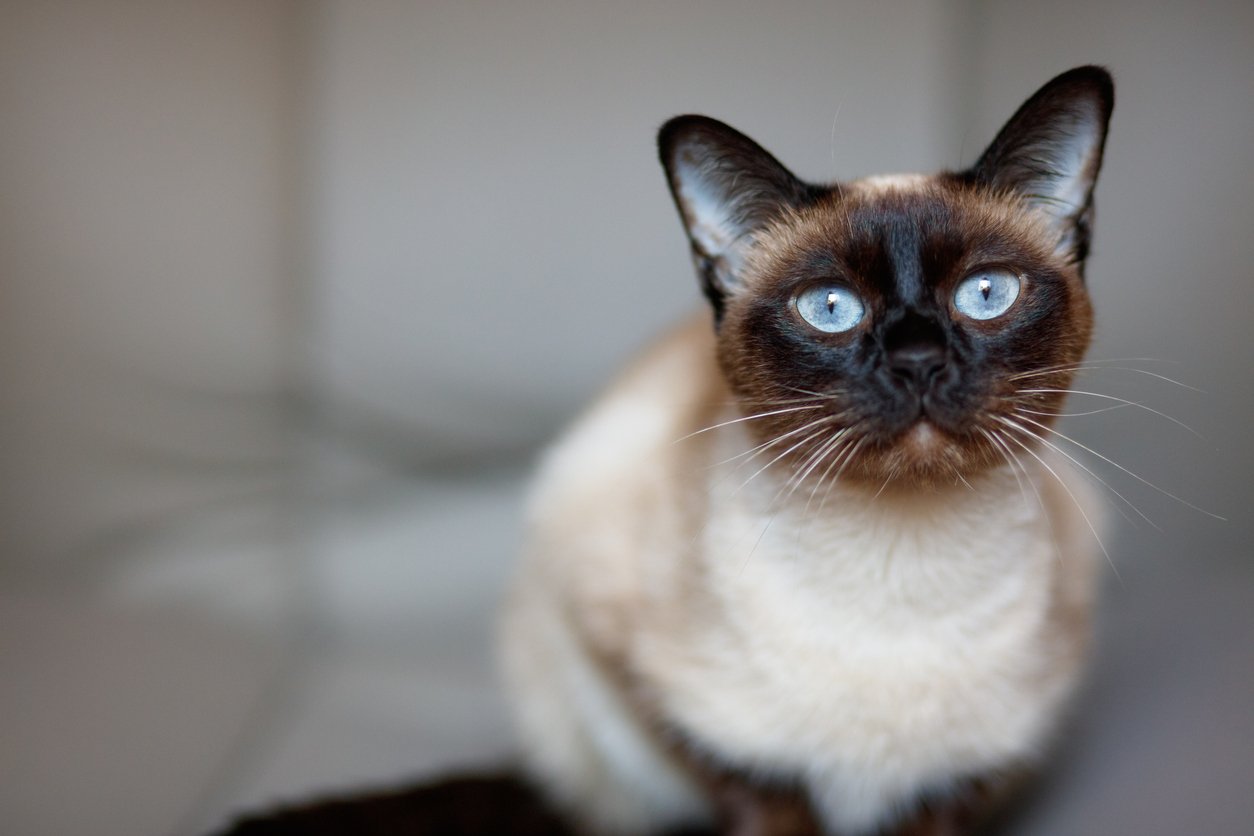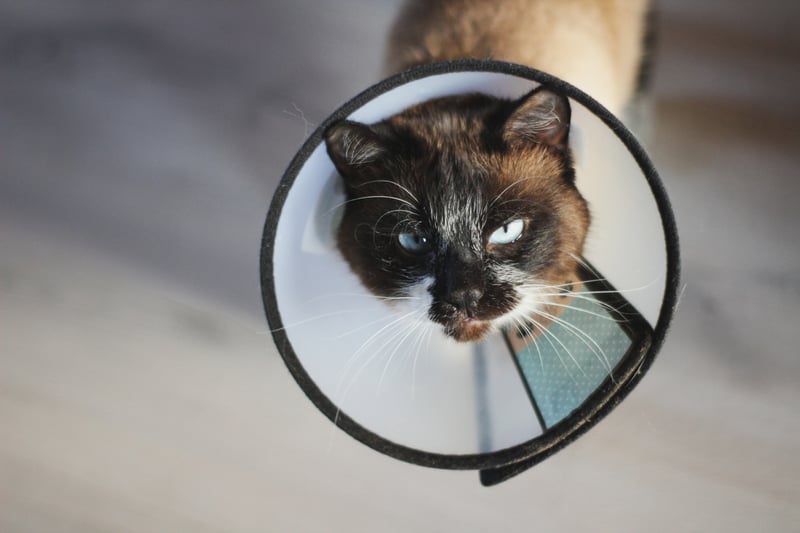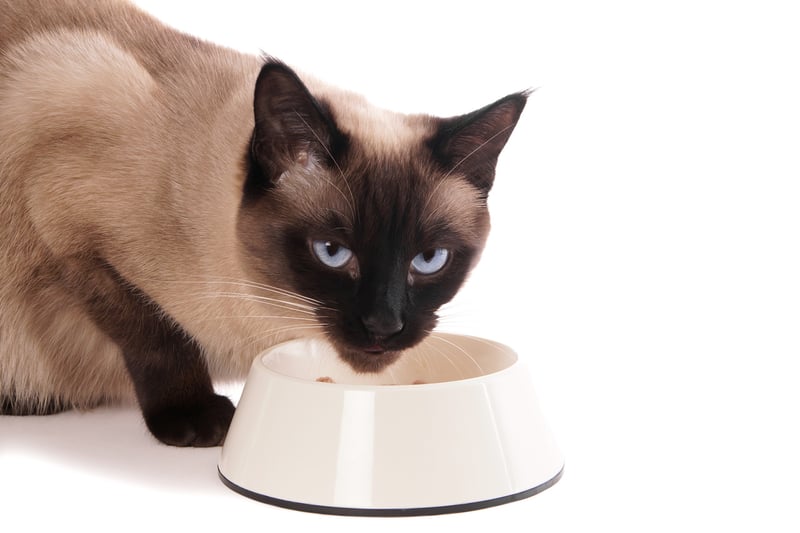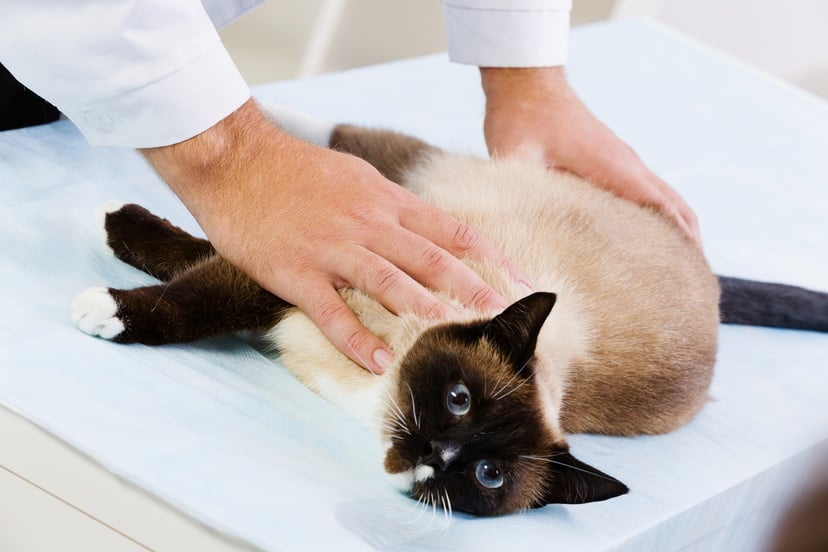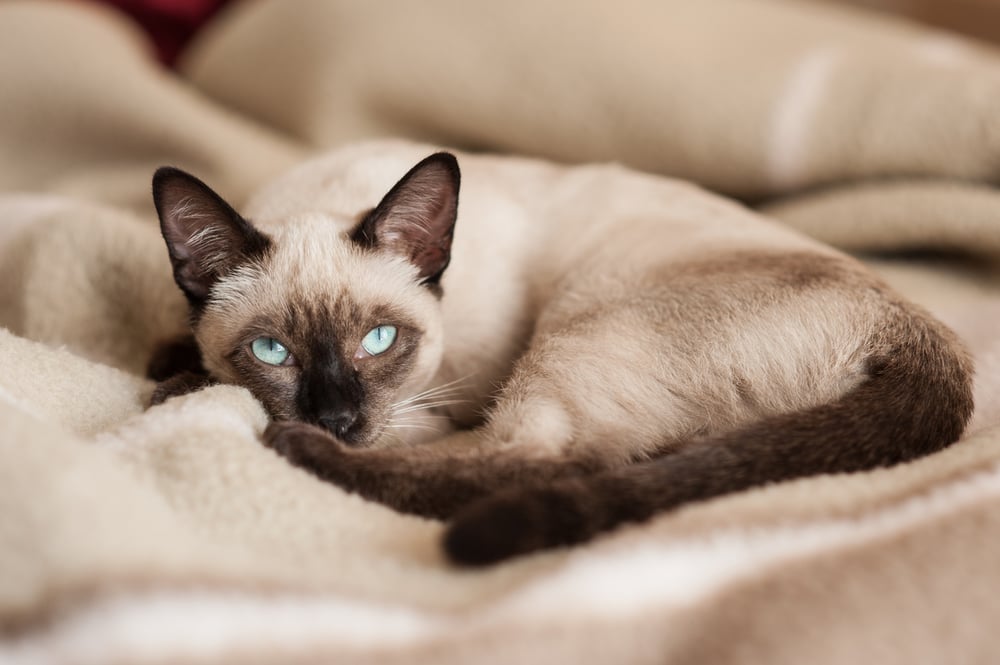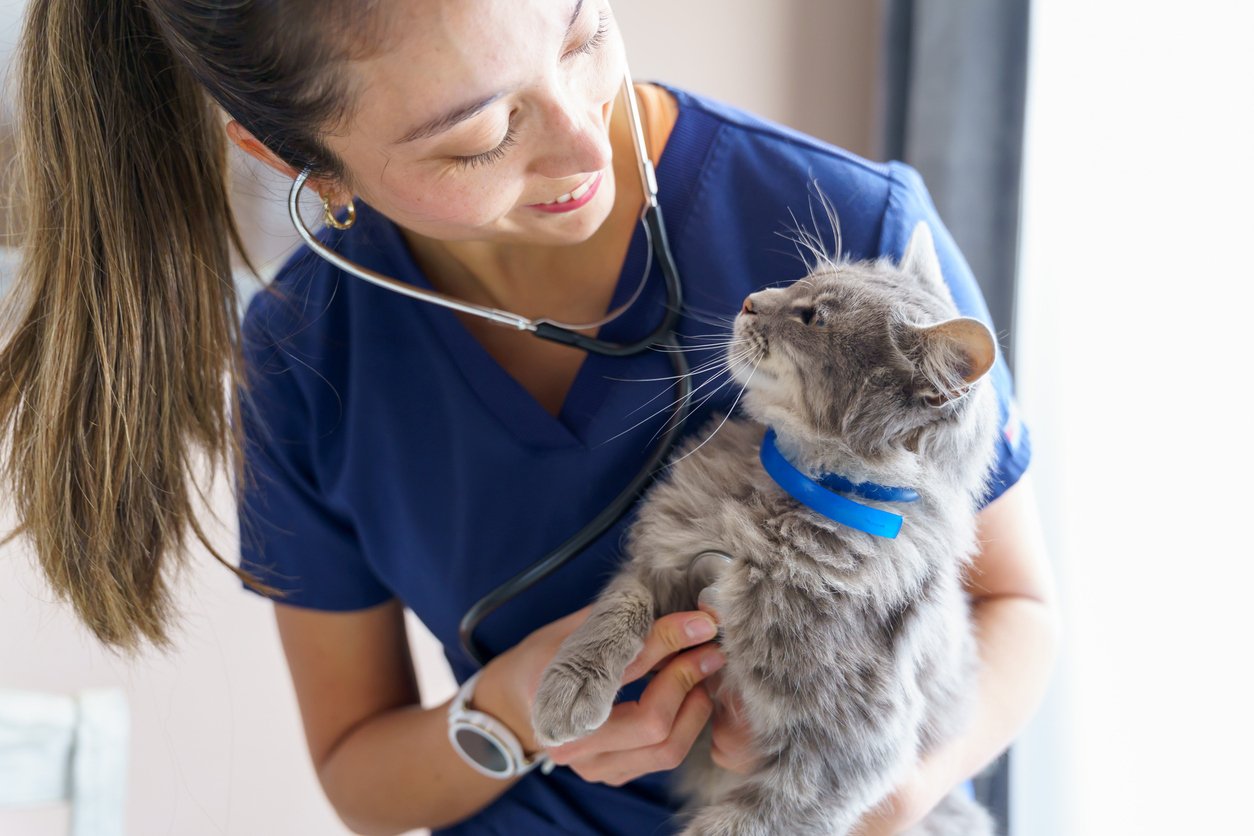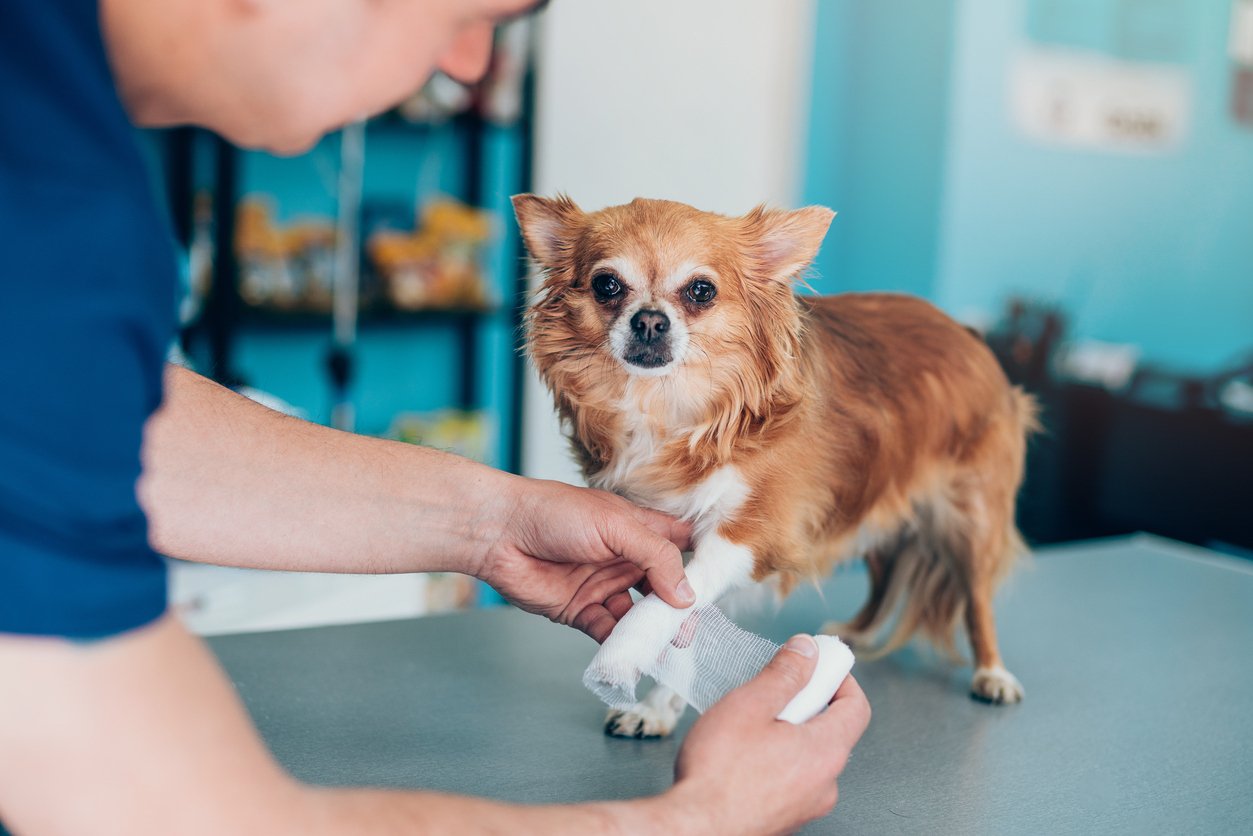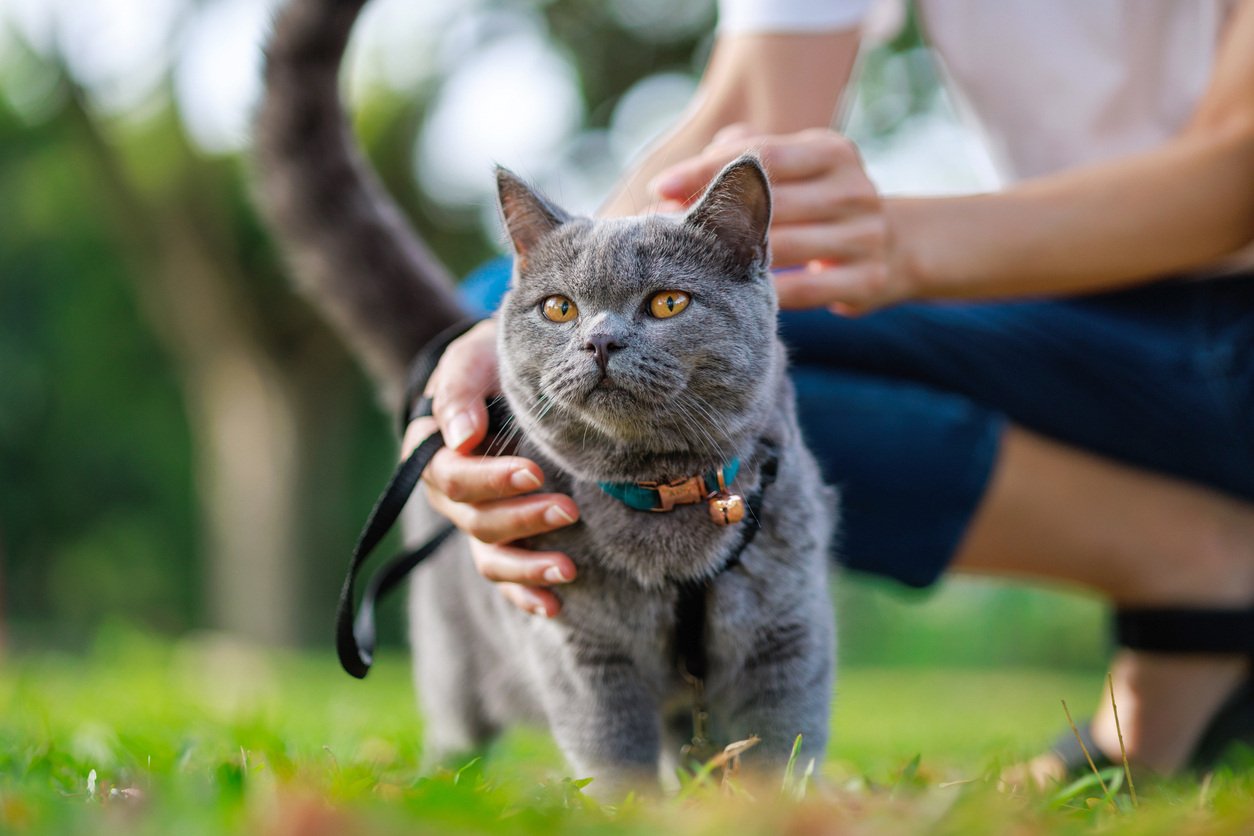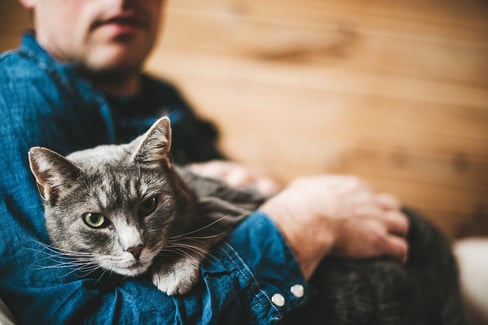Table of Contents
You know them, you love them. If you’re reading this post, you probably care about a Siamese cat who lives in your home!
Around for centuries and among one of the oldest breeds in existence, Siamese cats have distinctive blue eyes and pointy ears that make them instantly recognizable (and loved) by people all over the world. They’re so intelligent and trainable and have a sassy personality that we love so much, especially when they vocalize their feelings loudly, as Siamese cats are apt to do!
The thing is, our special cats are also prone to some not-so-fun Siamese cat health issues. While some are unavoidable genetic conditions, there are plenty of things you can do to prevent your Siamese kitty from experiencing painful health problems.
And what better way to get prepared than to educate yourself on the five most common Siamese cat health issues out there and some tips for maintaining good Siamese cat health.
Siamese Cat Health Explained
The Siamese cat is one of the most popular breeds of domestic cats in the world. The breed originated in Thailand, once known as Siam. It was bred by British and American ex-pats living there, who took their love for the local temple cats back home with them and shared this breed around the world.
With striking, regal features, like their long slender bodies, triangular heads, distinctive markings, and blue eyes, it's no surprise these cats were beloved by ancient Thai royals. So much so that a royal family member's soul was thought to be received by their Siamese cat when they died. The cat would then spend the rest of its days living luxuriously in a temple surrounded by monks and priests.
Nothing is more characteristic of Siamese cats than their loud, low-pitched voices – and they love to make them heard. Cats of this breed are known for their social and extroverted personalities, making them good companions for other home pets. Highly intelligent, Siamese cats can also learn tricks easily, such as fetching and even walking on a leash.
As wonderful as they are, our kitties are also prone to certain Siamese cat health genetic diseases. Like many pure breeds, their cat health is compromised thanks to selective breeding techniques to keep the “pure” bred status. When cats with a hereditary or genetic health issue are bred together, and offspring are bred with other purebred Siamese cats, those characteristics are passed down to the next generation. This is unlike mixed breed cats, with a broader mix of genes being passed down to their offspring.
Common Siamese Cat Health Concerns
We love our Siamese cats because they're intelligent, loving, and playful. They can live 12 to 15 years, depending on their overall health and genetics, meaning you can spend plenty of years with your Siamese, living a happy life.
However, Siamese cats are more susceptible to some diseases than other breeds and may have a shorter lifespan than some of their relatives. There are some common Siamese cat health issues you need to be aware of so you can recognize any signs and get your Siamese cat the veterinary care he needs as early as possible.
Health Concern #1: Amyloidosis
Causes
Siamese cats are unfortunately prone to a condition known as amyloidosis. In comparison to other breeds with low susceptibility to amyloidosis, Siamese cats have a genetically different version of the protein serum amyloid A.
Amyloidosis is a disease that results in the abnormal buildup of amyloid proteins in the body. Amyloid proteins are ordinarily present in the blood and tissues, but when there are too many of them, they can start to form deposits or scar tissue. These deposits can be found throughout your cat's body, but they're most common around organs such as the kidneys, liver, pancreas, and spleen.
Symptoms
Symptoms of the Siamese cat health issue amyloidosis include:
- Weight loss
- Lethargy (tiredness)
- Jaundice (yellowing of the skin)
- Abdominal pain
Treatment
The prognosis for amyloidosis depends on how far the disease has progressed before it's detected—the sooner it's caught, the more options there are for treatment.
Treatment options for cats with amyloidosis include medication (in mild cases) and surgery to remove part of the kidney if necessary (in severe cases). Your veterinarian can help you decide what course of action would be best for your Siamese cat, depending on how advanced their disease has become as well as their overall health status.
Health Concern #2: Vestibular Disease
Causes
Vestibular disease is a common ailment among Siamese cats, and it can be difficult to treat. Cats with vestibular disease or feline vestibular syndrome have problems with their inner ear. Much like the inner ear of a human, the vestibular system controls balance. There are disorders that disrupt these processes, such as Vertigo. There is a high incidence of these problems in Siamese cats, among other purebred cats.
Primary causes for Siamese cat health problems related to their vestibular system include:
- Having cancer
- Traumatic head injury
- Bacterial and fungal infections
- Medication-related allergies
- As a result of exposure to toxins
There are two causes of infection-related vestibular disease:
- Bacteria or viruses in the cat's ear can cause inflammation and fluid buildup, which leads to an inner-ear infection.
- Bacterial or viral infections elsewhere in the body may spread to the ears through blood flow or lymphatic systems, resulting in inner-ear infections.
Symptoms
Symptoms of vestibular disease in Siamese cat health include:
- Head shaking or tilting
- Loss of balance control
- Unsteady walking patterns
- Difficulty eating due to inability to hold food properly while chewing
- Drooling while eating because mouth movements make swallowing difficult
- Sensitivity towards light sources such as bright sunlight indoors
Treatment
To test for vestibular disease, you'll need to take your cat to the vet. They will perform several tests, including a complete physical exam, neurologic check, and blood work.
If your cat is diagnosed with vestibular disease, there are treatment options available as well as ways to prevent it from happening again in the future. For example, suppose your cat has been diagnosed with a vestibular disease caused by an ear infection. In that case, they may prescribe antibiotics that help treat both the infection and dizziness experienced by cats with this condition.
Health Concern #3: Asthma and Bronchial Disease
Causes
Asthma is a respiratory disease that causes the airways to narrow. This can make it difficult for your cat to breathe, leading to coughing and wheezing. It's one of the most common diseases in Siamese cats especially, with the breed being more prone than others to all bronchial diseases overall.
The exact cause is unknown, but research suggests that your cat's genes may play a role in developing asthma. It can also be impacted by things like allergies and even stress.
Symptoms
It's important to note that asthma in cats can look different than it does in people. For example, you might not expect to see a cat panting like they're having trouble breathing if they are having an asthma attack – since cats don't pant normally anyway!
Instead, watch for these signs when monitoring Siamese cat health:
- Coughing or gagging on inhaling air through their mouth
- Difficulty breathing while eating or drinking water
- Taking short breaths with an open mouth
- Licking lips often due to dry mouth from lack of moisture in their mouth caused by irritation from increased mucus production from inflamed tissues lining the throat area
Treatment
For mild cases of asthma treatment may not be necessary however if symptoms persist it’s vital to seek medical advice from a qualified professional before embarking upon therapies such as inhalers which could prove harmful if misused!
Health Concern #4: Progressive Retinal Atrophy
Causes
Progressive Retinal Atrophy, or PRA for short, is a degenerative eye disease that affects Siamese cats. A single nucleotide mutation in the gene CEP290 causes this progressive retinal atrophy. The disease progresses slowly over time and can result in blindness if not treated properly.
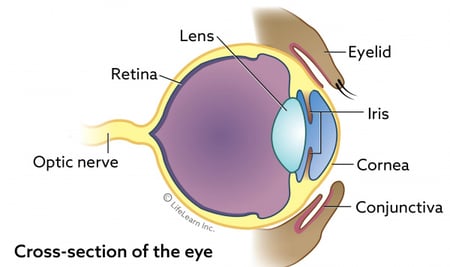
Early onset of blindness is caused by abnormal development of photoreceptor cells in the retina. Consult the diagram above to check out where the cat's retina is located.
Symptoms
If your kitty is experiencing any of the following Siamese cat health symptoms, it may be suffering from PRA:
- Confusion and disorientation
- Blindness or inability to see well in dim light
- Complete loss of vision in one or both eyes
Treatment
Genetic mutations make PRA untreatable. Siamese cat breeders can, however, check their breeding stock with these genetic tests now that scientists have identified two genes that cause PRA in cats. This can ultimately avoid passing the genes down to offspring.
Health Concern #5: Poor Nutrition
Causes
As you may have noticed, Siamese cats are exceptionally picky eaters. They're also prone to poor nutrition, obesity, and diabetes – and that's largely because they often have sensitive stomachs thanks to genetic problems like Esophageal hypomotility and Pyloric stenosis.
Both of these conditions cause issues with digestion and absorption of nutrients from food, and how well your cat's digestive mechanism works can affect how hungry your kitty is and leave them prone to malnourishment.
On the other hand, some Siamese kitties can become overweight by gorging on favorite treats, which may lead to diabetes.
Symptoms
The megaesophagus may cause Siamese to throw up portions of undigested food. Be sure to consult your veterinarian if your cat exhibits unusual eating behavior or consistently vomits after eating.
Treatment
Your vet can diagnose a Siamese cat with digestion issues through clinical testing and screening procedures like X-rays. Medications, diet modifications, and special feeding positions are typically used to treat this condition.
Siamese Cat Health Issues Prevention
An ounce of prevention is worth a pound of cure, as they say, and that is especially true when it comes to Siamese cat health issues prevention techniques. Ensuring your kitty is prepared to face Siamese cat health concerns as they age is the best way to avoid serious health outcomes for your special furball.
Let’s get into some of the prevention tips we trust to keep Siamese cats healthy.
Feed a Supplement
If you want your Siamese to be healthy and happy, it's important to make sure they are receiving the right vitamins and minerals. One way to do this is by adding cat supplements to their diet.
There are many Siamese cat health benefits of feeding a supplement, including:
- Digestive health & hairball control
- Fish oil supplements for cats
- Skin and coat health
- Immune system health
- Joint health
In addition to helping with these issues, pet supplements can also help your Siamese maintain a healthy weight and lower his risk of developing joint problems as he ages.
Cat supplements come in many different forms. Some extra picky Siamese cats may have preferences of one type over the other, so don’t fret if they don’t accept the first supplement you try.
The table below shows some supplement formats that may be used to manage Siamese cat health.
|
Format of Cat Supplements |
How to Feed |
|
Soft Gels |
Hide it in a serving of their favorite wet food |
|
Tablets |
Crush it up and add to food by mixing it in, or by hiding the tablet in wet or dry food |
|
Liquids |
Add to water or on top of food |
|
Powders |
Sprinkle on top of food, mix it in, or add to water |
The smaller the serving can mean an easier time feeding it to your kitty, but make sure the dose is full of active ingredients and not a bunch of fillers and unnecessary, non-therapeutic ingredients. TRI-ACTA and TRI-ACTA H.A. are two such supplements that don't contain any fillers.
These are great options to support your cats joint health and mobility, either preventatively or if there is an injury or mobility concern. Even better, TRI-ACTA supplements are powdered, and are pure and concentrated, meaning the servings are small and easy to administer.
TRI-ACTA for Pets
A proactive approach for developing and younger adult pets to maintain optimal joint health mobility, minimize inflammation and fend off age-related ailments.
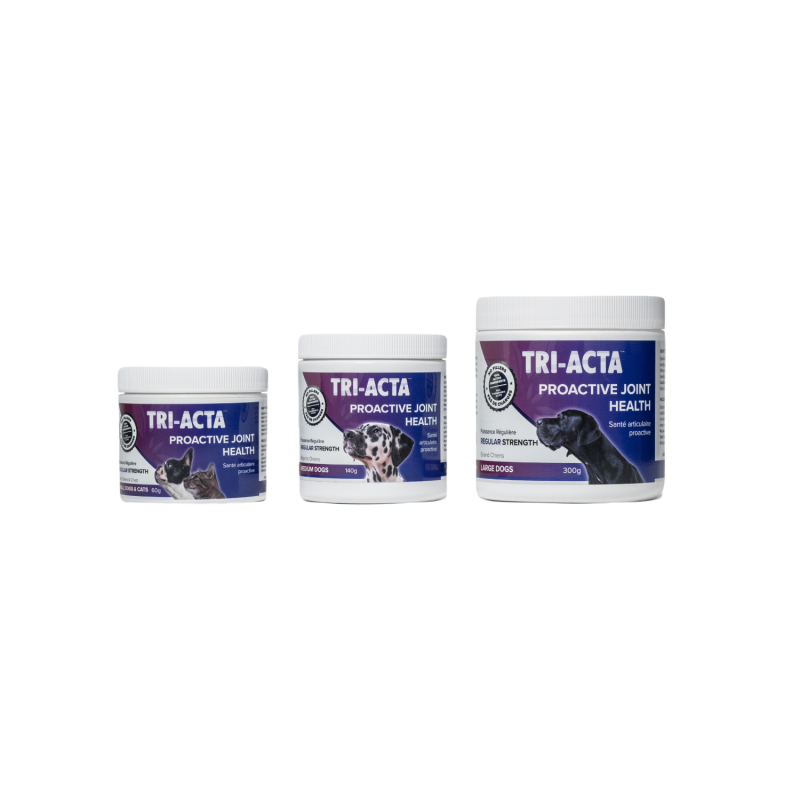
Maintain Dental Health
You may not realize it, but your cat’s dental health is just as important as your own. In fact, gum disease is one of the most common health issues in Siamese cats. If left untreated, this condition can lead to heart and liver problems. It’s also excruciating for your cat!
Luckily, there are ways to keep their teeth clean and healthy – and if you have a feline friend with an aversion to having her pearly whites cleaned by humans, don’t worry. There are still ways to keep your Siamese cat's health in check!
You can help avoid Siamese cat health issues in the periodontal department by:
- Brushing at least once a week using a soft-bristle toothbrush or finger toothbrush designed specifically for cats.
- Alternatively, consider giving her treats that help remove tartar buildup between brushings.
- It's ideal for training your cat early, but even older cats can learn to accept us brushing their teeth.
- If she doesn't like your brushing, try slowly introducing her to a tooth brushing habit using a gradual program:
- During the first teeth brushing session, get your cat used to the toothbrush. Let the cat lick off some toothpaste from the toothbrush. You can put toothpaste near their mouth if they are reluctant to lick it. At this point, do not attempt to brush their teeth.
- In the next session, use a finger to gently introduce toothpaste to one of your cat's canine teeth, rubbing the gums a little bit.
- After a few weeks of trying those routines, it's time to start brushing your cat's teeth. You will need to gently stretch the cat's lips back so that you will be able to insert the brush between her cheeks and gums.
Weight Management
It's crucial to monitor your Siamese cat's weight. It may be tempting to feed them endless treats every time they flash their cute kitty eyes at you, but a healthy weight is essential for their health and longevity.
You can use a scale at home or visit your vet for help monitoring your cat’s weight. The average adult Siamese weighs about 10 pounds, with males generally weighing more than females. If you find that your Siamese has put on a few pounds, talk with your vet about ways to encourage them to lose some weight before it becomes a problem – and remember that this rule can also apply if they have lost too much weight.
Depending on the goals for your kitty’s weight, it can be important to apply different management strategies.
Consult the table below for tips on maintaining and reducing weight to avoid Siamese cat health problems.
|
Siamese Cat Health Weight Goal |
Tips |
|
|
|
If your kitty has too much body fat or goes a long time without eating properly, that could lead to further Siamese cat health issues down the line. That's why it's important to consult your vet if you feel like your cat's weight is an issue and create a custom plan for better weight management.
Regular Check-Ups
Even if you are a self-proclaimed cat person, there are still some things you may not be able to catch. That's why Siamese cats need to visit the vet at least once per year. This is where a professional lens and opinion are important because they can help prevent possible health problems.
Visiting the vet for regular checkups can detect health issues like diabetes and heart disease early on in their development. By visiting the vet regularly, they will be able to tell if your cat is overweight or underweight, which helps them better serve as your companion throughout its life cycle. The veterinarian will also administer vaccines that need to be given or updated and make sure all of their systems are functioning properly.
The table below outlines some of the key systems that will get an overview during a yearly checkup on Siamese cat health.
|
Systems in Siamese Cat Health Check |
What Vets Check |
|
Coat and skin |
|
|
Eyes and ears |
|
|
Teeth |
|
|
Body condition |
|
|
Internal organs |
|
If your Siamese has been diagnosed with chronic diseases such as cat arthritis, kidney failure or diabetes, frequent checkups may be even more important for them than other breeds. An example of this is if your Siamese has kidney failure, then blood work tests could show whether or not treatment is working effectively enough so that both parties' needs are met properly over time – thus preventing further complications down the line (such as stroke).
Conclusion
The Siamese cat is one of the most popular breeds in the world, but that doesn’t mean they don’t have their share of health issues. While some may be unavoidable due to genetics or other factors beyond your control, there are ways to help prevent common illnesses and make sure your kitten stays healthy for as long as possible.
Supplements are a great way to keep your Siamese cat healthy as they grow from kittens to seniors. As kittens and young cats grow, supplements like Integricare's TRI-ACTA for pets provide support for their soft tissues, joints, and bones. As for senior cats and those with arthritis, they can benefit from TRI-ACTA H.A. for pets, a formula that contains hyaluronic acid for more mobile joints.
TRI-ACTA H.A. for Pets
Our maximum strength formula is optimally designed to accelerate the formation of cartilage, minimize inflammation, expedite the healing process, and improve joint conditions.
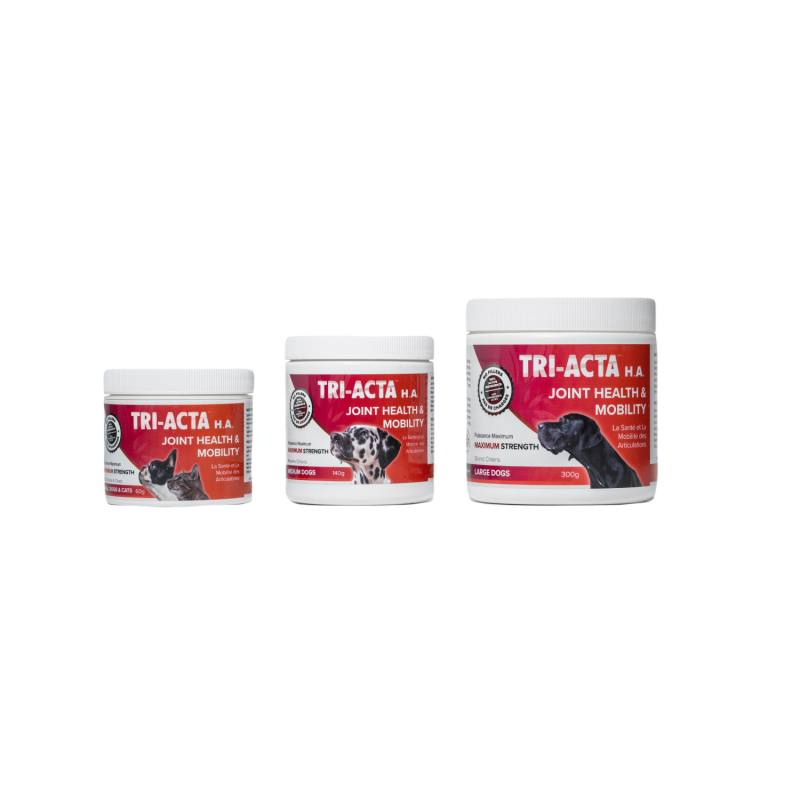
Find out more about how glucosamine for cats can improve their health, as well as more tips on maintaining good pet health, on our blog.
Newsletter Signup
Subscribe to our newsletter to receive the latest news and exclusive offers.
.jpg?height=2000&name=Cliick_Integricare-DISPLAY-REVISEDV2%20(1).jpg)
Proactive & Therapeutic Joint Supplements
When given daily, Integricare joint supplements recover bone and joint injuries faster and help prevent mobility injuries from happening in the first place.

